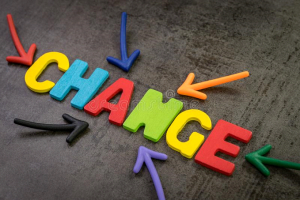
In a recent article by Wotton and Johnston in Therapy Today (March 2022) I was interested in their belief that ‘Therapy has never been more important in public life’.
They go on to say that ‘Roughly a third of families in the UK include someone who is mentally ill. A third of us are expected to experience mental illness at some point in our lives. In developed countries, the World Health Organisation estimates that mental illness accounts for nearly 40% of all illness (stroke, cancer, heart disease, lung disease and diabetes together account for less than 20%). Mental ill health is arguably Britain’s biggest social problem’.
Science and research have now been able to provide evidence as to the effectiveness of therapy. Linden in How Psychotherapy Changes the Brain (2006) has shown that changes brought about by therapy are visible via brain imaging. Lemma et al. Brief Dynamic Interpersonal Therapy (2001) argues that the overall effect size for therapy is larger than the success rate for flu vaccines and heart surgery and that three-quarters of people who have therapy are emotionally better off than those who don’t.
Layard & Clark Thrive: The Power of Psychological Therapy (2014) believes categorical that counselling and psychotherapy have a success rate just as high as the majority of treatments for physical illnesses and often have a substantially larger effect size than many medical or surgical procedures (Carr The Effectiveness of Psychotherapy 2007).
Clients are telling therapists that they feel better as a consequence of having therapy. According to the BACP Counselling Changes Lives: Public Perception survey (2019) found that 76% of those who’ve had therapy or counselling would recommend it to friends and family.
It is fair to say that therapy doesn’t work for everyone. If 76% of people would recommend therapy to family and friends, that means 24% wouldn’t. This can be for a multitude of reasons from timing, problems with engagement, complexity and people looking for a miracle cure. The truth is that miracles don’t happen all that often and I am sceptical of any miracle cures in counselling. I know from almost 30 years’ experience as a therapist that in reality change is possible but not easy and it takes hard work. For that reason, change takes time.
What is at the Heart of Effective Therapy?

Whilst there are many different types of therapy including some possible passing fads, there are others that adhere to the ‘basics’ describing what all good therapy has in common.
Wotton and Johnston draw on the Goldfried & Eubanks A Principle-based Approach to Psychotherapy Integration. (2019) which suggests that all effective therapy works according to five evidence-based, broad principles of change. These are: -
⦁ Promoting clients’ hope and expectation that therapy can help – most of the time, for most people, with most problems, therapy is effective at relieving distress.
⦁ Establishing a good working relationship – a good therapeutic alliance is the foundation for change, which means agreement on the goals and methods of therapy.
⦁ Helping clients become more aware of what causes their difficulties – standing back to see the wood for the trees, and/or zooming in to see the detail, as it really is.
⦁ Encouraging clients to engage in ‘corrective experiences’ – helping them connect with thoughts and feelings they tend to avoid, and encouraging them to do things differently to learn something new or unexpected.
⦁ Practising ongoing reality testing by putting all of the above together to create a virtuous circle to help clients notice when they’re on autopilot; pause and reflect; do something differently; note the results, and apply that learning.
As a primarily psychodynamic and relational counsellor I work with these five principles. I find that this allows time for clients to get a deep and meaningful understanding of themselves and their relationships. I believe that with time and understanding this enables clients to begin to change their thoughts, feelings and habits of a lifetime and …’at its best, therapy helps us experience more meaning, more contentment and more fulfilment. In short, counselling does changes lives’.




